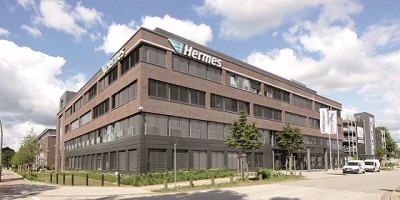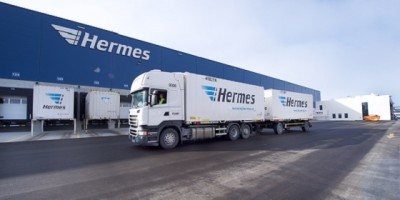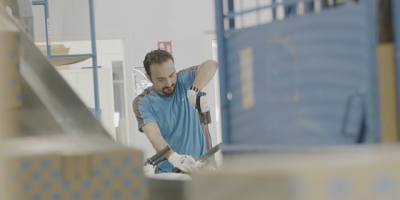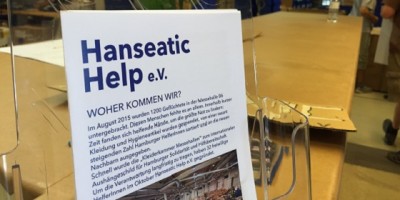Employees
Our employees are our greatest asset
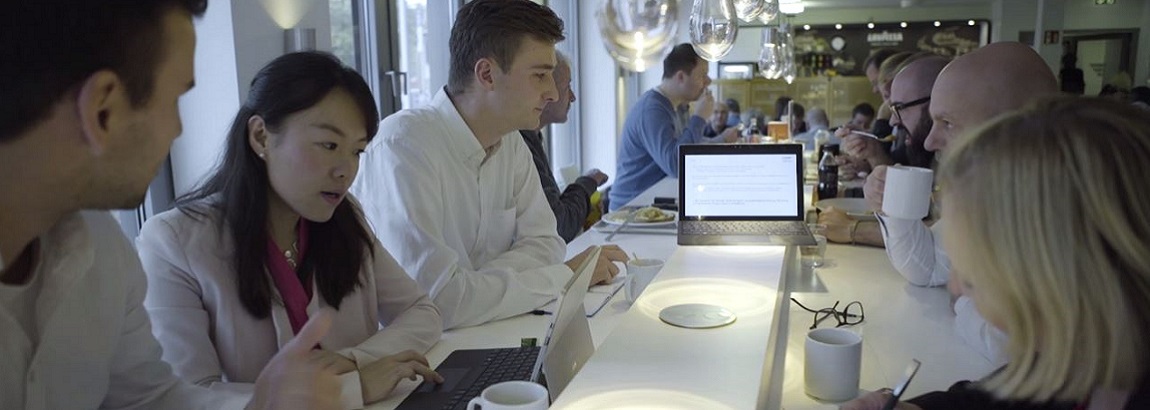
Our employees are among our most important stakeholders - and at the same time our most important asset: they are not only representatives of our brand, they are partners to our customers and clients. Our aim is to offer our employees fair and attractive working conditions, to deploy them in line with their individual abilities and to promote their development goals.
The Human Resources division is responsible for supporting our Hermes employees. The HR department reports directly to the CFO. Our success as a modern and supportive employer is also assessed by neutral external bodies. For example, in 2018 Hermes was awarded the "Hamburg's Best Employers" prize for the fifth time in a row. The award is based on an employee survey of participating companies and also it supports them in further improving their personnel work.
New challenges for our employees
Progressive digitisation and internationalisation are bringing about significant changes in logistics and require profound transformations in our company. For us and for our employees this means constantly facing new demands which we would like to help them meet. This is why, under the leadership of CEO Carole Walker, Hermes is currently developing a new strategy for the entire Group.
Cultural change 4.0
As part of this transformation process, Hermes' internal cultural change focuses on an innovative corporate culture with agile working methods.
The aim of the cultural change at Hermes is to develop a corporate culture that enables us to react rapidly to external influences and entails the ability to change in an agile way. The focus of this is primarily on networking and collaboration. This gives rise to ‘thinking’ dimensions where professional decisions can be made by individuals on their own, independently of their levels in the hierarchy. Scope is to be created in which independent initiatives and a concrete approach to innovative projects are possible. New management principles contained in the cultural change are also changing the ways our own employees work.
Bluefield
The Bluefield programme focuses on our logistical infrastructure. Our logistics restructuring, geared towards greater customer centricity (a ‘many-to-many’ approach), will decentralise both sales and operational responsibility. At the heart of this is the establishment of new sites.
As part of a large-scale infrastructure programme, nine new logistics centres will be built by 2020. Some €300 million has been set aside for the programme. For our employees, this restructuring means that they will carry more responsibility in future and in some cases take on new tasks, for which we offer them appropriate training and our support. The prerequisites for successful cultural change are the qualifications and diversity of our employees, which is also made clear by their diverse strengths.
Number of employees as well as new hires and fluctuation rate:
- Hermes Germany (HG) has 5,555 employees (at headquarters, hubs, depots, etc.)
- New hires HG:
- (at December 2015): 391 (proportion female/male: 27.9%/ 72.1%)
- (at December 2016): 689 (proportion female/male: 30.8%/ 69.2%)
- (at December 2017): 1,398 (proportion female/male: 18.7/ 81.3%)
- The fluctuation rate rose to 14.3% in 2017 from 8.1% in 2015 and 7.1% in 2016.
- Hermes Einrichtungs Service (HES) has 382 employees (at headquarters, hubs, depots, etc.)
- New hires HES:
- (at December 2015): 63 (proportion female/male: 23.8%/ 76.2%)
- (at December 2016): 94 (proportion female/male: 26.6%/ 73.4%)
- (at December 2017): 64 (proportion female/male: 17.2%/ 82.8%)
- The fluctuation rate rose to 13.2% in 2017 from 4.1% in 2015 and 3.6% in 2016.
In order to maintain our position as a top employer, we set ourselves ambitious goals for our employees.
Our goals
- Implementing a risk-based audit approach for contractor/partner certification on the final mile and implementing social audits at all active service partners.
- Promoting and anchoring cultural change. This means rethinking existing working methods and behaviour - especially in view of increasing digitisation.
- More women (30%) in management positions in service and administration (Hermes Germany, Hermes Europe and Hermes Einrichtungs Service)
- New training formats for employees that enable them to meet new requirements (e.g. various online learning programs)

